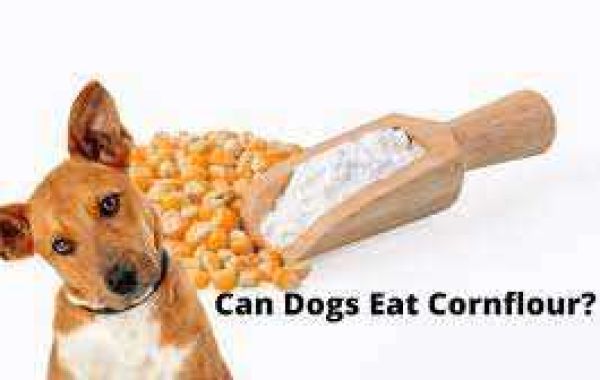Corn flour is a common ingredient found in many human recipes, including baked goods and savory dishes. As a dog owner, you may wonder whether it's safe to feed corn flour to your canine companion. In this guide, we'll explore the safety of corn flour for dogs and how it can be used in their diet and corn flour dogs.
Is Corn Flour Safe for Dogs?
Corn flour, when used in moderation and in the right form, can be safe for dogs. However, it's essential to understand the nuances and potential benefits and risks:
Plain Corn Flour: Pure corn flour, made from ground corn kernels, is generally safe for dogs when used in moderation. It is not toxic, but it should only be used as an occasional treat or as a small part of a balanced diet.
Cornmeal vs. Corn Flour: Cornmeal is often confused with corn flour. Cornmeal is coarser and may not be as easily digestible for dogs. It's best to use finely ground corn flour if you decide to offer it to your dog.
Potential Allergies: Some dogs may have allergies or sensitivities to corn. If your dog hasn't had corn before, introduce it slowly to monitor for any adverse reactions like digestive upset or skin issues.
Avoid Seasonings: If you decide to cook with corn flour for your dog, ensure that it's plain and free of any added seasonings, salt, or spices, which can be harmful to dogs.
Ways to Incorporate Corn Flour into Your Dog's Diet:
Homemade Dog Treats: You can use corn flour to make homemade dog treats. Combine it with dog-safe ingredients like peanut butter, pumpkin, or banana to create tasty and safe treats for your pup.
Bland Diet: Corn flour can be used as part of a bland diet if your dog has an upset stomach. Mix it with plain boiled chicken or rice to create a soothing meal for your dog.
Supplementing Kibble: In small amounts, corn flour can be mixed with your dog's regular kibble to add some variety to their diet.
Thickening Agent: Corn flour can be used as a natural thickening agent in homemade dog-friendly gravies or soups.
Treats for Training: Small amounts of corn flour treats can be used for positive reinforcement during training sessions.
Important Considerations:
Moderation: Always use corn flour in moderation. Too much can lead to digestive issues or an imbalance in your dog's diet.
Consult a Vet: If you're unsure whether corn flour is suitable for your dog, consult with your veterinarian, especially if your dog has known food allergies or sensitivities.
Watch for Allergic Reactions: Keep an eye on your dog for any signs of allergies or adverse reactions when introducing corn flour or any new ingredient into their diet.
Conclusion:
Corn flour, when used in moderation and in its plain form, can be a safe and occasionally enjoyable addition to your dog's diet. However, it's essential to consider your dog's individual dietary needs, any potential allergies or sensitivities, and consult with your veterinarian if you have any concerns. Homemade treats and meals made with corn flour can be a fun and nutritious way to share a little something special with your furry friend.








